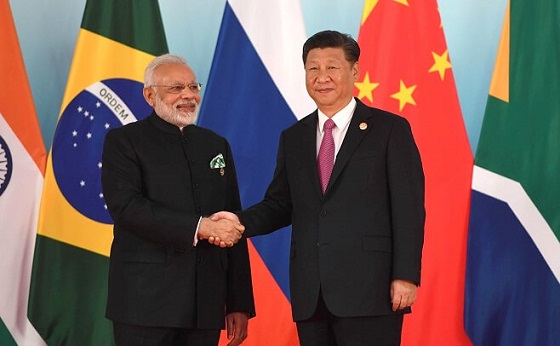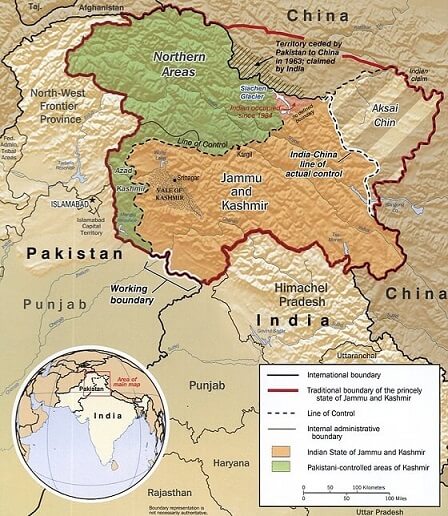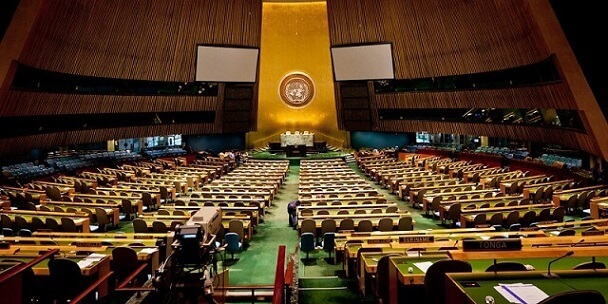Through the many powerful dynasties that ruled over China, the greatest ambition of the various kings used to be the propagation of their unquestioned authority over as large an area as possible. They subscribed to the ancient adage that China is the Middle Kingdom (Zhongguo) while all peripheral territories are either its vassals or inconsequential. Furthermore, the king was said to be bequeathed with the Mandate of Heaven by the gods to rule and thus was the only legitimate ruler under the Sun. This power structure of the Chinese society was millennia old even when the Ming Dynasty ruled five hundred years ago.
For hundreds of years, every single king (occasionally a dowager queen) in China strived to present himself as the legitimate ruler based on the Mandate of Heaven and accordingly shaped the society in his own image. Three of the most important strategies used by the Chinese kings were cultivating vassal states, documenting the official version of the history of the dynasty, and the racial purification of the masses.
China’s history across various dynasties is replete with incidences when the king commissioned the writing of an “official” history of his dynasty. This was done for posterity’s sake since the rulers understood very well that legitimacy and ever-lasting fame can be derived only by presenting themselves as the rightful claimant to the throne in accordance with China’s past as well as in the eyes of the future generations. Similarly, China’s history is full of incidents of mass murder aimed at the eradication of various racial minorities (by comparison, India’s history even in the worst phases seems benign). Just like in India, various dynasties ruling China had their origins in the wild steppes of Central Asia (thus the orientation of the Great Wall) but with one key difference: while in India the wars were fought between armies leading to the military casualties on both sides, in China, the mass murder of the general population was the norm. It is then not too far to relate today’s Chinese maneuvers with its ancien régime.
It is believed that Mao Zedong was once asked about his opinion on the French Revolution and he replied that it is too early to judge! While the anecdote is apocryphal, it surmises the long-term planning that comes naturally to the Chinese. Except for China and its satellite state, North Korea, every single communist and authoritarian regime that took birth in the late 1940s when Colonialism was finally on a retreat has had coups, revolutions, uprisings, etc. leading to a change in the form of the government or the ruling elite. But, the Chinese have reinvented themselves, again and again, to continue fashioning the nation in their medieval mindset. Today’s China believes that after seven long decades of strategic subservience, its time has finally arrived to become the Middle Kingdom once again. Under the almighty president-for-life Xi Jinping, China again has a legitimate ruler under the Sun.
As the United States of America is retreating across the world under President Trump, China is aggressively moving forward to fill the vacuum. Nothing else explains the aggressive foreign policy that China is pursuing right now despite inflicting damage on the world through the inception and concealment of the COVID-19 pandemic. It is one thing to poke Vietnam, Philippines, Indonesia, Taiwan, etc. over territorial disputes and altogether different to mount an attack on the nuclear-equipped and battle-hardened Indian armed forces. Despite a trade deficit of around $50 billion per year that India has offered to China as insurance to peaceful ties between the two nations, China did not desist. It wants nothing less than the abject subjugation of its neighbors just like Pakistan and North Korea. At the same time, China has become more bellicose in recent years toward its non-Han ethnoreligious and cultural minorities like Uyghurs and Tibetans. Furthermore, the Chinese state has mastered the art of propaganda and censorship—not an inkling of dissent is tolerated—within its boundaries to write the official history of the nation and inculcate it in the minds of the subjects. Throwback to the medieval times, check.
It is ironic then, that in a way, India must learn from China to counter it. Economic development that China has witnessed in the past four decades is the bedrock of its confidence and aggression. Economic development cannot come about without internal stability and sound economic policies. Today, India stands at crossroads. It has two nuclear-equipped belligerents with unresolved territorial disputes. The wise policy would be to calm the tensions with either i.e. break the triangulation. This has been the policy of successive governments of all stripes. It has not worked out yet but India shall keep trying. In an increasingly uncertain world, India cannot trust any nation for total support against China but will of course continue to strengthen its relations with the West.
On the other hand, the deterioration in internal stability due to hostility against minorities and economic slowdown from the past couple of years (i.e. before the disastrous impact of the pandemic) are worrisome. India must renew its resolve of being tolerant toward all diversities and attaining a sustainable and high economic growth rate. As Historian Peter Frankopan has written, ‘Tolerance [is] a staple feature of a society that [is] self-assured and confident of its own identity.’ A smart politician like Prime Minister Narendra Modi would surely know this all too well.
“Uneasy lies the head that wears a crown,” wrote Shakespeare. Prime Minister Modi is acutely aware that his legacy is at stake and how he steers the nation at this juncture will not only seal his place in posterity but will also dictate India’s foreign policy for a long time to come. Being the all-powerful leader within the government and his party, he has the capability of taking any decision as he deems fit. With carte blanche, this is his moment of truth. History has provided him a golden chance to rise above narrow politics and become a great statesman and a true economic reformer. He can bring the nation together with a renewed resolve to prosper or can maintain the status quo.
For everybody else: Great nations are not forged in a hurry, they absorb the hard work of many generations to achieve greatness.

 Dear Prime Minister, We Are Squarely Behind You. All We Ask For Are Transparency And Statesmanship
Dear Prime Minister, We Are Squarely Behind You. All We Ask For Are Transparency And Statesmanship